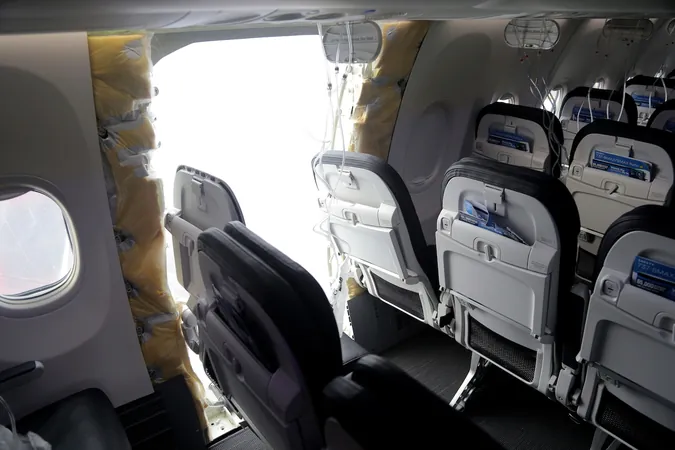
Boeing's Cultural Crisis: FAA's Urgent Call for Change After 737 Max Incident
2025-01-03
Author: Lok
Introduction
In a striking revelation nearly a year after a harrowing incident involving a Boeing 737 Max in Oregon, the outgoing head of the Federal Aviation Administration (FAA), Mike Whitaker, emphasized the urgent need for a drastic cultural transformation within Boeing. This urgency stems from a devastating event in which a panel blew out mid-flight, pushing safety concerns to the forefront of aviation discussions.
FAA Actions Post-Incident
Whitaker, who will step down soon to allow President-elect Donald Trump to appoint a new FAA administrator, took to social media to reflect on the FAA's decisive actions following the mid-air emergency. In January, the FAA grounded all 737 Max aircraft equipped similarly to the one involved in the incident. This was just the beginning; in response to the crisis, the FAA deployed more inspectors to Boeing facilities, imposed restrictions on the production of the 737s, and demanded a comprehensive plan from Boeing to rectify longstanding manufacturing issues.
Boeing's Response
“Boeing is working to make progress executing its comprehensive plan in the areas of safety, quality improvement, and effective employee engagement and training,” said Whitaker. However, he underscored that this challenge transcends a mere yearly timeline, stating, “What’s needed is a fundamental cultural shift at Boeing that focuses on safety and quality above profits.” This transformation, he warned, will necessitate continuous effort from Boeing and stringent oversight from the FAA.
Ongoing Initiatives by Boeing
In light of these remarks, Boeing released a statement detailing its ongoing initiatives to bolster safety and confidence among employees. Notably, the company has made strides in addressing employee concerns, ensuring their confidentiality, and enhancing training programs for mechanics and quality inspectors. Furthermore, Boeing reported substantial progress in reducing defects in the fuselages of 737 jets, manufactured by Spirit AeroSystems, a major supplier it aims to acquire for $4.7 billion.
NTSB Investigation
The aviation community remains on high alert, as the National Transportation Safety Board (NTSB) continues its investigation into the alarming door-plug blowout on an Alaska Airlines 737 Max. Remarkably, despite the gaping hole in the aircraft, the skilled pilots managed to land safely in Portland without any severe injuries reported.
Manufacturing Concerns
A preliminary report from investigators revealed that the bolts crucial for securing the panel had not been replaced after maintenance work was performed at a Boeing facility, raising serious questions regarding manufacturing protocols. Whitaker acknowledged that the FAA's prior oversight of Boeing had fallen short, vowing to take any recommendations from the NTSB seriously to enhance the agency’s regulatory practices.
Conclusion
As the clouds of uncertainty loom over Boeing's operation, the aviation industry watches closely. Will the company rise to meet these challenges head-on, or will the specter of past mistakes continue to shadow its flight path? Only time will tell if Boeing can navigate this turbulence and emerge with a renewed commitment to safety—before it’s too late.

 Brasil (PT)
Brasil (PT)
 Canada (EN)
Canada (EN)
 Chile (ES)
Chile (ES)
 Česko (CS)
Česko (CS)
 대한민국 (KO)
대한민국 (KO)
 España (ES)
España (ES)
 France (FR)
France (FR)
 Hong Kong (EN)
Hong Kong (EN)
 Italia (IT)
Italia (IT)
 日本 (JA)
日本 (JA)
 Magyarország (HU)
Magyarország (HU)
 Norge (NO)
Norge (NO)
 Polska (PL)
Polska (PL)
 Schweiz (DE)
Schweiz (DE)
 Singapore (EN)
Singapore (EN)
 Sverige (SV)
Sverige (SV)
 Suomi (FI)
Suomi (FI)
 Türkiye (TR)
Türkiye (TR)
 الإمارات العربية المتحدة (AR)
الإمارات العربية المتحدة (AR)